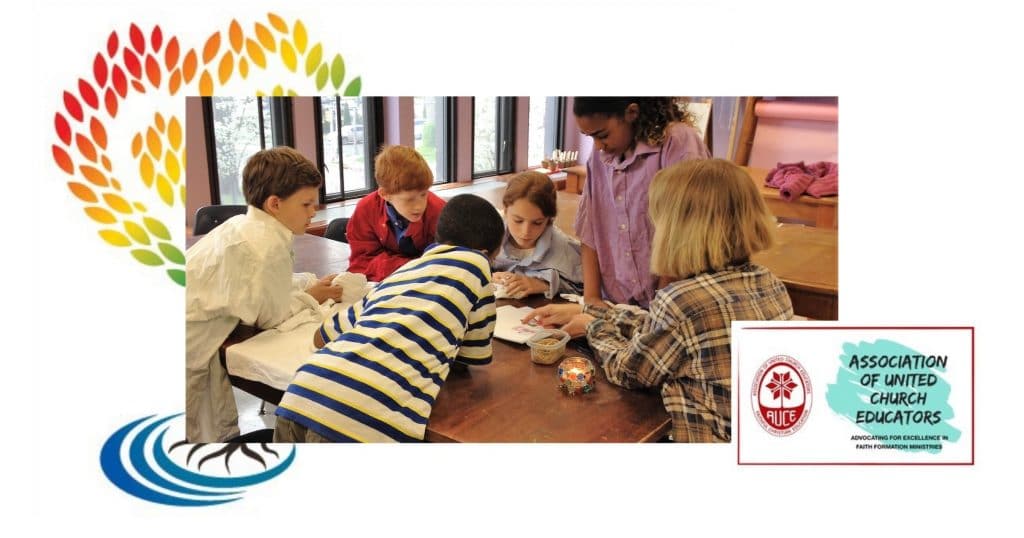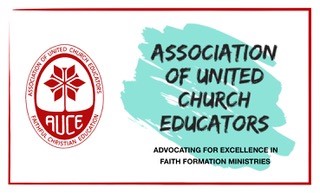Christian educators, at 50-year mark, embrace a changing vocation
Teaching is an ancient ministry, mentioned in the earliest letters of the church.
So, for teachers, adapting to change is nothing new. They’ve been doing it for centuries.
Educators in today’s United Church of Christ seem keenly aware of that as they mark an important milestone. One question on their minds is: What’s next?
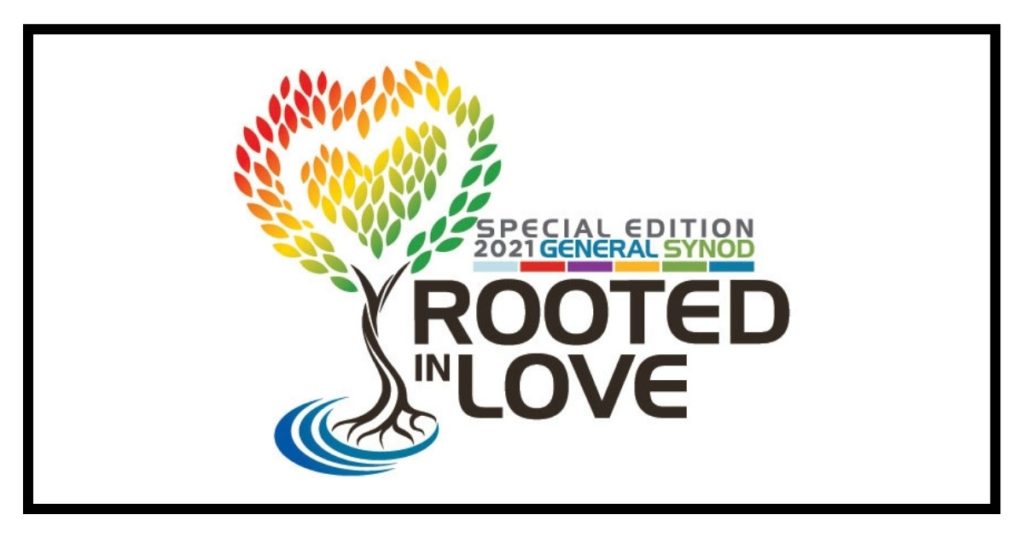
The UCC General Synod this summer will celebrate 50 years of the Association of United Church Educators. The Synod’s “Evening of Celebration,” July 15 at 8 p.m. EDT, will also mark anniversaries of:
- The Open and Affirming Coalition (50 years).
- The First National People of Color Environmental Summit (30 years).
- Global Ministries (25 years) .
‘Time of significant changes’
“Teaching ministries have always been a part of the church,” said the Rev. Thom Bower of Northfield, Ill., AUCE’s vice chairperson. “They vary from culture to culture and decade to decade. We are at a time of significant changes in our culture, in the role of religion in society, and in the ways we understand learning and teaching.”
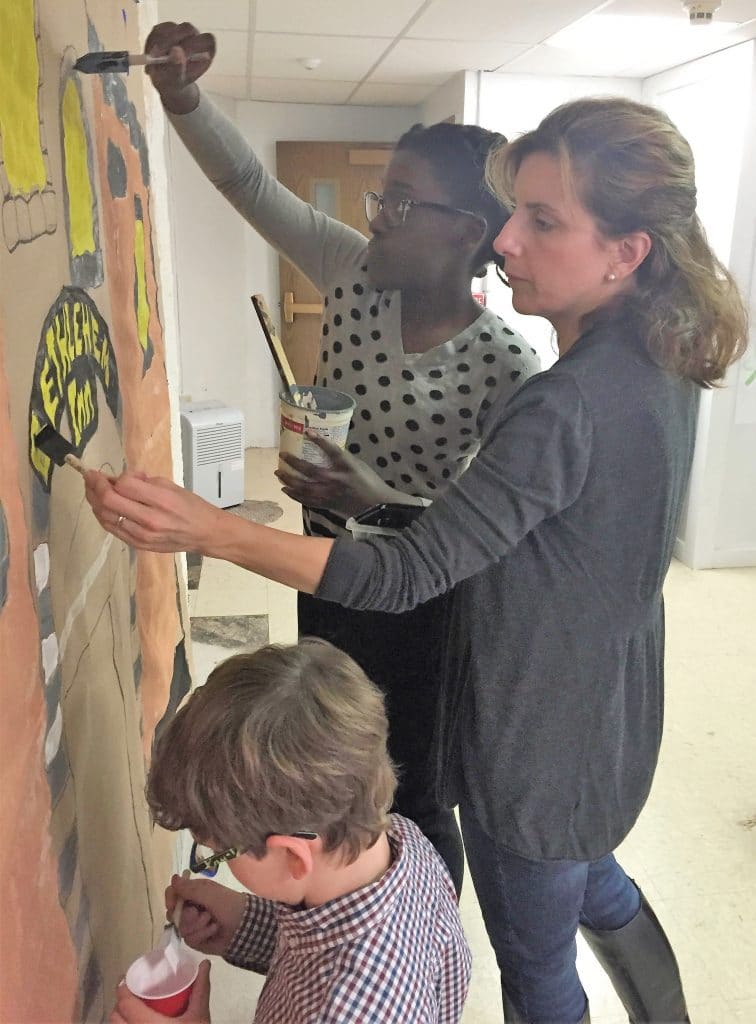
“Faith formation and Christian education ministries are in transition — shifting away from a focus on the trained professional,” said Debbie Gline Allen, minister of faith formation with the Southern New England Conference. “Transitioning to what exactly, we can’t say yet. But it is my hope that this focus will shift to intergenerational ministries including worship, as well as helping parents to nurture faith in the home.”
“In recent years, there has been a renewed understanding that faith formation can happen anywhere, and that church educators should understand that every gathering provides an opportunity for teaching about faith,” said the Rev. Julie Yarborough of Summit, N.J, AUCE’s chairperson.
Indeed, much — but not everything — has changed from the way things were in 1971, when AUCE was formed.
‘Educators — volunteer and professional’
Back then, the UCC had a million more members and nearly 1,900 more local churches than it does now. Education was the focus of an entire division of one of its national ministries. Nine mainline denominations worked together on Christian education projects. There was a “long history of excellence in the production of fine curriculum resources” by the UCC and its predecessor churches, said one of AUCE’s founders, the Rev. Ruby Schroeder of Wadesville, Ind., in a history she wrote.
Even in 1971, however, not everyone agreed on how to describe the vocation. At an ecumenical Christian education conference that year, some 90 UCC attendees talked about forming a group that eventually became AUCE. Schroeder said they agreed that “our future was to support quality church education and professionals in the field.” But later, she said, a founding document drafted by a small group drew “a storm of protests.” “Clearly, the use of the word ‘professional’ touched a nerve,” she said.
To be sure, there were “far more people engaged in teaching ministries” at that time, Bower said — not only in local churches, but in seminaries and Conferences. Graduate study and professional training for specialists in Christian education were more common.
But then, as now, volunteers were also vital. What emerged, as Schroeder put it, was an AUCE “that was committed to the service of all educators — volunteer and professional — even as the continuing concerns for high standards for church educators, advocacy and justice were raised.”
What AUCE does
Today AUCE describes itself as the UCC’s “national network of faith formation ministry leaders.” It is also:
- “A membership organization, of and for lay and ordained, paid and volunteer pastors, educators and youth ministry leaders.”
- “A network of collegiality” for all of the above.
- “A support community to broaden the scope and depth of education ministries” in the UCC.
Among its offerings are:
- Conferences, workshops and webinars — often in cooperation with one of its seven regional UCC bodies or with other denominations.
- Christian education job listings throughout the UCC.
- Links to resources areas such as anti-racism and youth ministry.
‘Resourcing churches’
Some of those resources come from the national ministries of the UCC — especially the Faith Education, Innovation and Formation Team in Justice and Local Church Ministries. One example is a recent “Tuesdays for Nurture” webinar hosted by Faith INFO, “Building Supportive Networks in Faith Formation.” It featured AUCE Board member Lisa Hart of the Wisconsin Conference staff and four people who work in faith formation in local churches.
“AUCE is a critical partner of the national setting in resourcing churches with timely curriculae,” said the Rev. Chris Davies, Faith INFO’s team leader. “I am so thrilled to celebrate their 50th alongside them!”
AUCE also offers a blog on current issues. One of those issues — perhaps it always has been one — is technology. Here, again, change is nothing new. Film strips with vinyl LP records as their sound tracks, in wide use in 1971, are long gone. So are 16-millimeter film projectors. Teachers continue to adapt to the latest medium and move onto the next one.
Spiritual growth online
But the shifts brought by the COVID-19 pandemic will need special attention, Bower said. He has seen them not only in his AUCE role but as associate minister at Northfield (Ill.) Community Church, UCC, and as transitional minister at Faith Mennonite Church, Minneapolis.
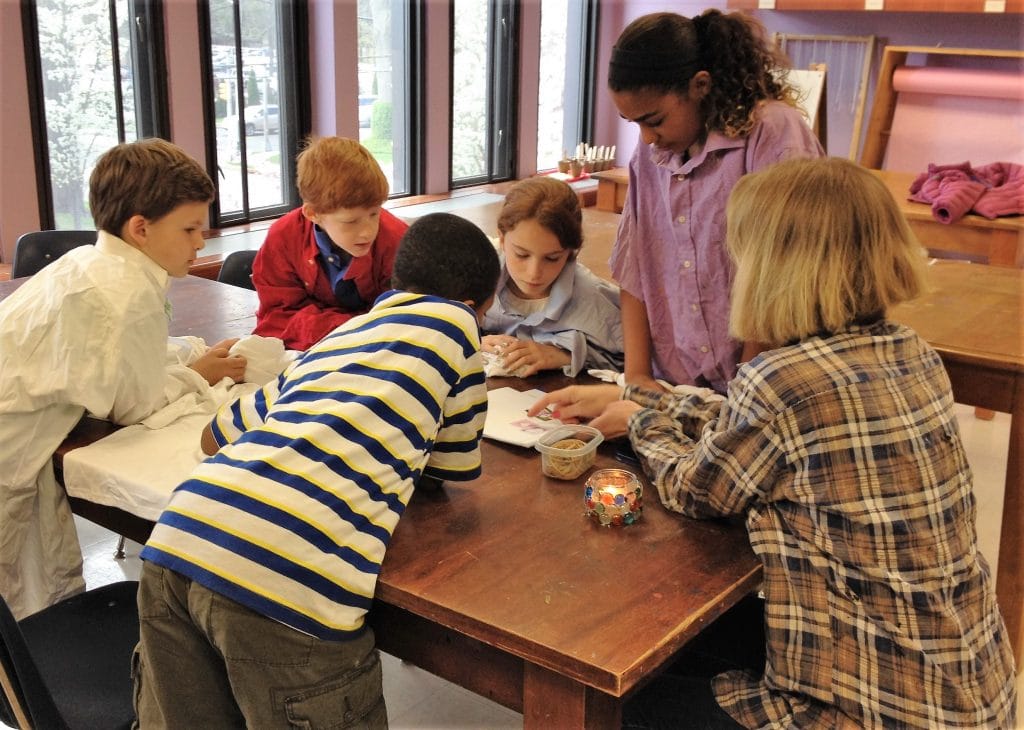
Educators have adapted to Zoom and other online methods, he said. But teaching relies on interaction, and he has heard many educators say “how different that dynamic is when not in person” — especially for those working with children. “Spiritual growth in childhood is intimately connected to social relationships. Those relationships are different when online.”
Churches are likely to keep online channels open after COVID has passed. So spreading knowledge about how the online world affects learning and relationships will be an important role for AUCE, he said. He also hopes to see wide sharing of methods that local educators have figured out for themselves. “We will soon begin to reflect together on what we have learned, identifying practices that will continue independent of COVID restrictions.”
Transition as opportunity
AUCE’s leaders say networking like that is key to what it can offer now — and to figuring out what’s next. “Fifty years ago the church was seeing a surge in curriculum resources, aids for teaching every age and all ages together, engaging social issues and theological debates,” Bower said. “Local educators work much differently now to gather and adapt ideas for teaching.”
“Many churches can no longer afford to hire Christian education directors, so they rely on volunteers, who may or may not have any theological or pedagogical training,” added Yarborough, associate minister at Christ Church UCC, Summit, N.J. Also, she said, denominations offer “far fewer resource centers and professional staff members that are devoted to Christian education.”
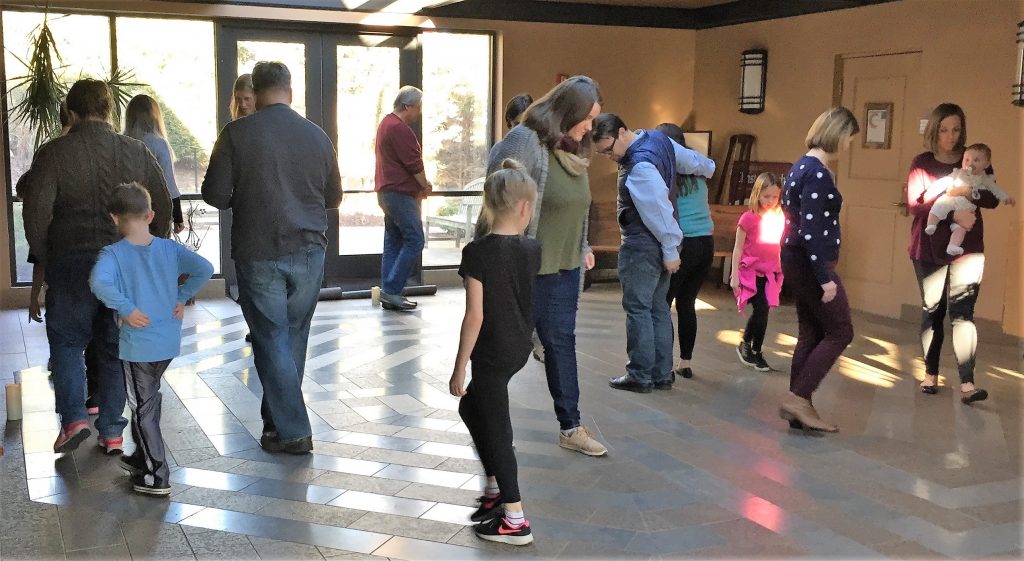
Intergenerational learning “is seeing a resurgence,” she said, “and in many places children are being more fully integrated into the life of the worshiping community.” She said educators are also helping parents become “primary formers of faith.” “Many of us are providing resources to parents and encouraging them to read Bible stories, pray, meditate and explore various practices of faith with their children at home.”
Gline-Allen, who is AUCE’s secretary and “digital missioner,” said she sees opportunity in this time of transition. She shared this passage from the association’s February celebration of its anniversary:
“This past year has pushed us all to pivot into new delivery systems and models in our faith formation ministries. We have learned that faith formation manifests itself in a wide variety of forms — in worship, in service to others, everyday at home, in solitude, in the faith community. … We are transforming this ministry into what it needs to be for the 21st Century. We are crowd-sourcing, we are sharing resources over the Internet, we are pivoting into the unknown.”
Related News
A Prophetic Call for Justice and Peace in Palestine
The executive leaders of the United Church of Christ have issued the following statement...
Read More‘Love is Greater Than Fear’: Regional Youth Events get to the heart of gospel message
United Church of Christ teens attending this summer’s Regional Youth Events (RYE) are...
Read MoreUCC desk calendars available to order now
Prepare for your day, month and year with the United Church of Christ desk calendar —...
Read More